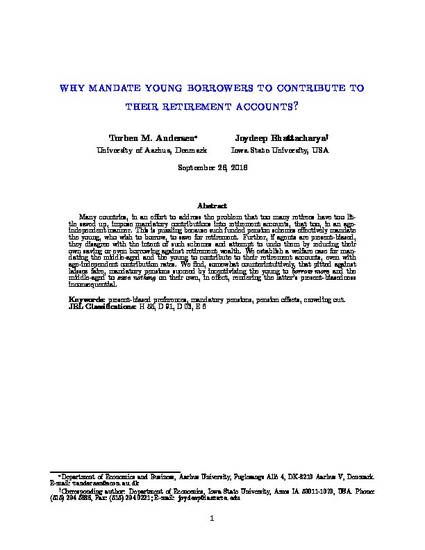
Many countries, in an effort to address the problem that too many retirees have too little saved up, impose mandatory contributions into retirement accounts, that too, in an age-independent manner. This is puzzling because such funded pension schemes effectively mandate the young, who wish to borrow, to save for retirement. Further, if agents are present-biased, they disagree with the intent of such schemes and attempt to undo them by reducing their own saving or even borrowing against retirement wealth. We establish a welfare case for mandating the middle-aged and the young to contribute to their retirement accounts, even with age-independent contribution rates. We find, somewhat counter-intuitively, that pitted against laissez faire, mandatory pensions succeed by incentivizing the young to borrow more and the middle-aged to save nothing on their own, in effect, rendering the latter's present-biasedness inconsequential.
Available at: http://works.bepress.com/joydeep_bhattacharya/75/

This is a working paper of an article published as Andersen, T.M., Bhattacharya, J. Why mandate young borrowers to contribute to their retirement accounts?. Econ Theory 71, 115–149 (2021). doi:10.1007/s00199-019-01235-2. Posted with permission.